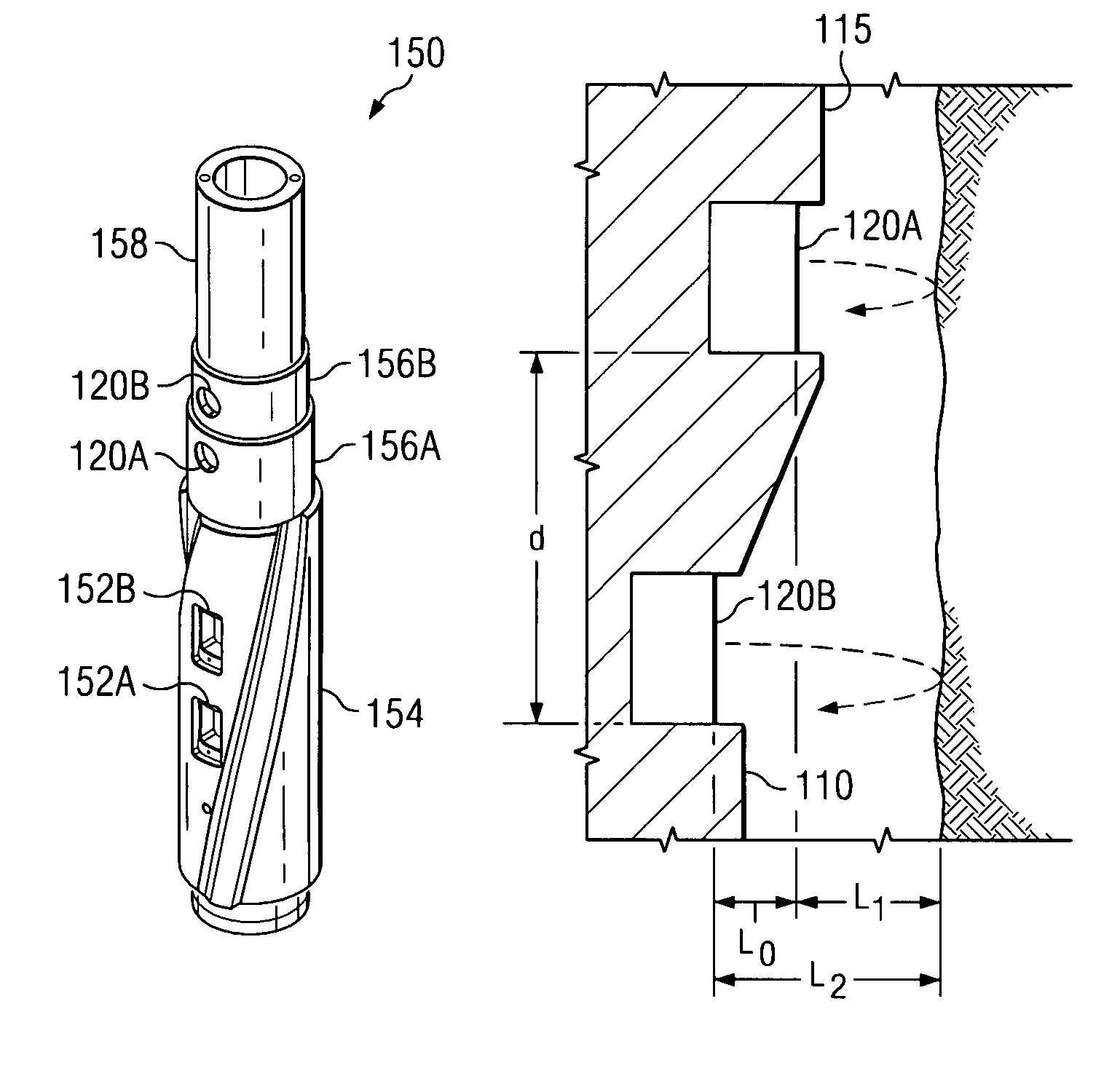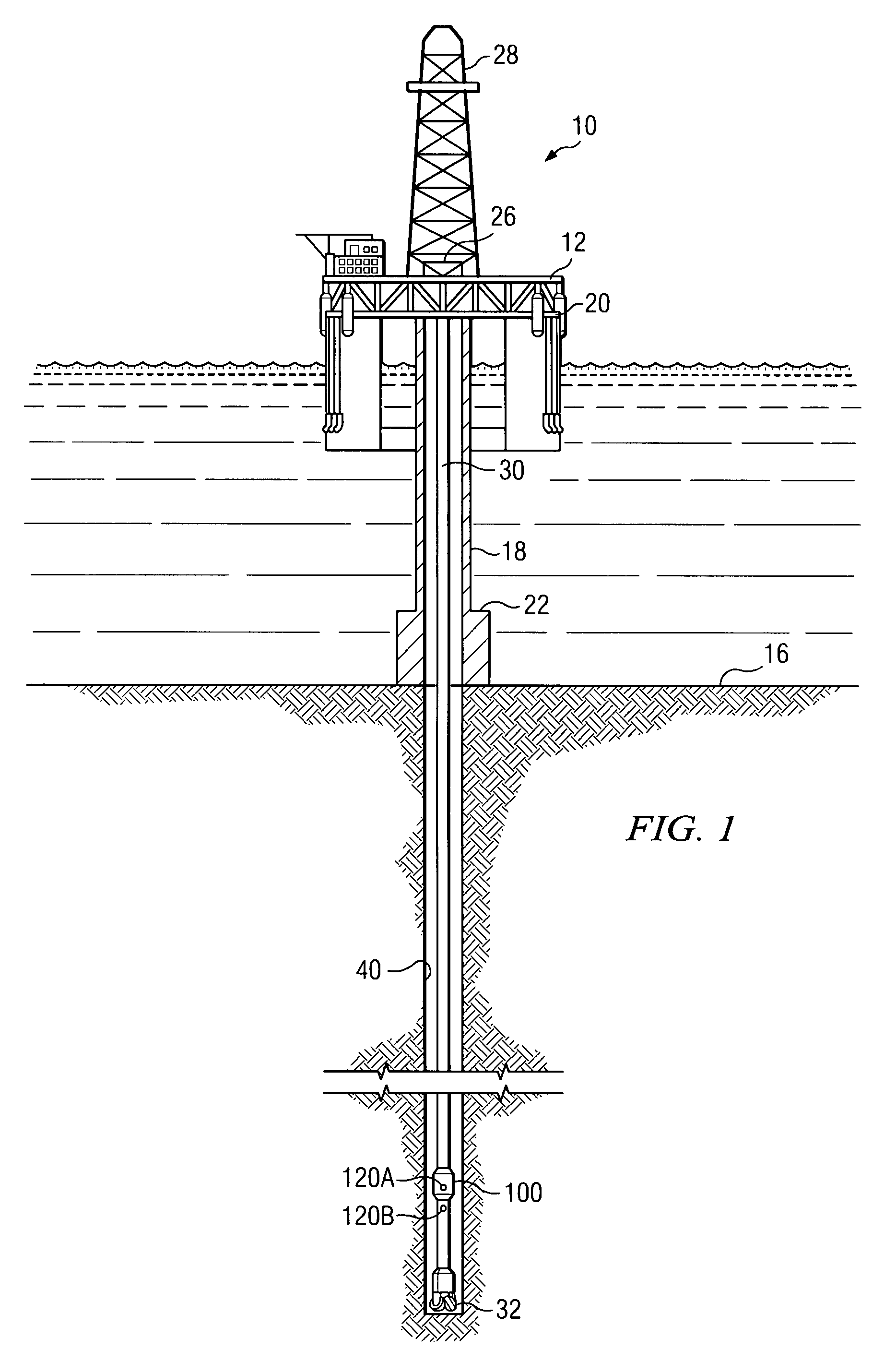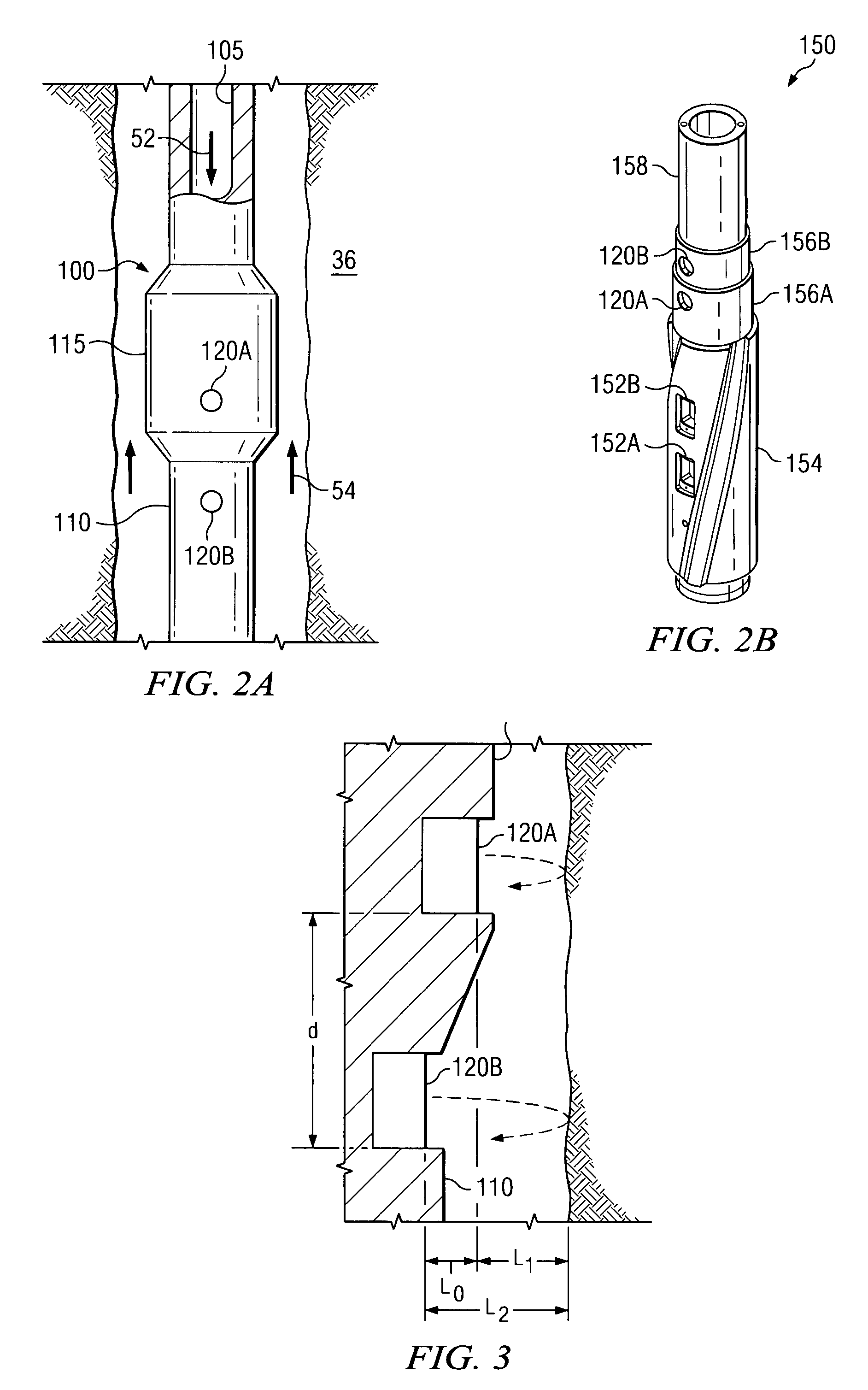Apparatus and method for determining drilling fluid acoustic properties
a technology of acoustic properties and apparatus, which is applied in the field of downhole methods, can solve the problems of large degree of error in the estimated acoustic velocity and attenuation coefficient, the inability to accurately measure the acoustic velocity of drilling fluid, etc., to achieve the effect of improving the accuracy of standoff measurements
- Summary
- Abstract
- Description
- Claims
- Application Information
AI Technical Summary
Benefits of technology
Problems solved by technology
Method used
Image
Examples
Embodiment Construction
[0024]FIG. 1 depicts one exemplary embodiment of a measurement tool 100 according to this invention in use in an offshore oil or gas drilling assembly, generally denoted 10. In FIG. 1, a semisubmersible drilling platform 12 is positioned over an oil or gas formation (not shown) disposed below the sea floor 16. A subsea conduit 18 extends from deck 20 of platform 12 to a wellhead installation 22. The platform may include a derrick 26 and a hoisting apparatus 28 for raising and lowering the drill string 30, which, as shown, extends into borehole 40 and includes a drill bit 32 and a downhole measurement tool 100 having first and second radially and axially offset ultrasonic standoff sensors 120A and 120B. Drill string 30 may further include substantially any other downhole tools, including for example, a downhole drill motor, a mud pulse telemetry system, and one or more other sensors, such as a nuclear or sonic logging while drilling tool, for sensing downhole characteristics of the b...
PUM
 Login to View More
Login to View More Abstract
Description
Claims
Application Information
 Login to View More
Login to View More - R&D
- Intellectual Property
- Life Sciences
- Materials
- Tech Scout
- Unparalleled Data Quality
- Higher Quality Content
- 60% Fewer Hallucinations
Browse by: Latest US Patents, China's latest patents, Technical Efficacy Thesaurus, Application Domain, Technology Topic, Popular Technical Reports.
© 2025 PatSnap. All rights reserved.Legal|Privacy policy|Modern Slavery Act Transparency Statement|Sitemap|About US| Contact US: help@patsnap.com



